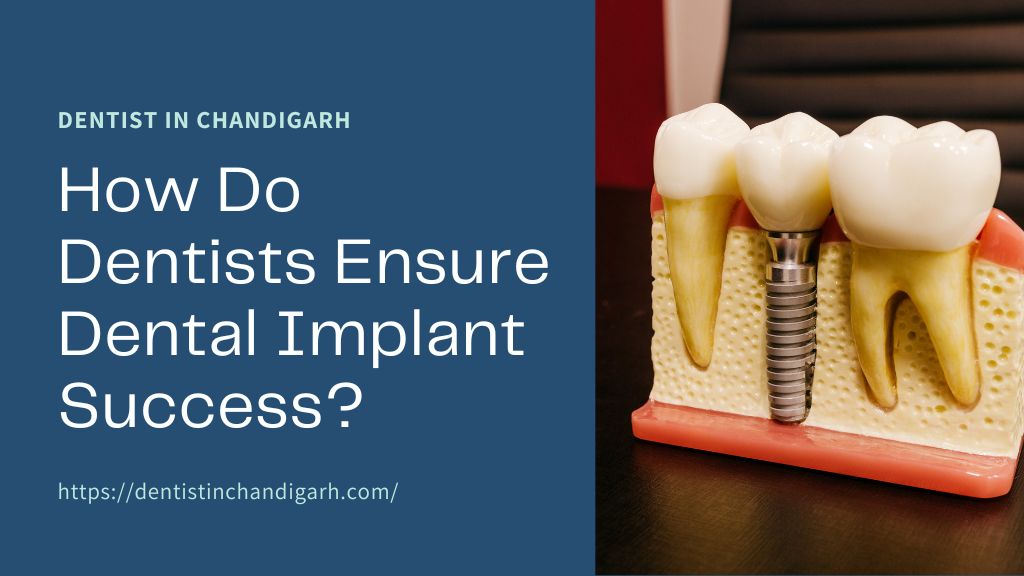Losing teeth is never easy. It can change how you smile, how you eat, and even how you feel about yourself. For many people, finding a solution that looks and feels natural becomes very important. This is where dental implants step in.
They are often called the gold standard for replacing missing teeth because they offer strength, stability, and a long-lasting result.
Still, many patients wonder about the success of the treatment. Will it really last? How do dentists make sure everything goes smoothly? These questions are natural because dental implants involve surgery, healing, and long-term care. The truth is that success doesn’t happen by chance.
Dentists follow a careful process that involves planning, skill, technology, and teamwork between the patient and the dental team. Understanding how all these steps fit together can help patients feel more confident before starting the journey.
What Makes a Dental Implant Work Well?
A Dental Implant is like an artificial root that is placed inside the jawbone. It usually has three main parts. First is the titanium post, which goes into the bone and acts like the root of a natural tooth. Then comes the abutment, which connects the post to the visible crown.
Finally, the crown is placed on top, and it looks and functions like a real tooth.The success of an implant depends largely on a process called osseointegration.
This is the natural bonding that happens when the jawbone grows around the implant and holds it firmly in place. If the implant fuses well with the bone, it can last for decades or even a lifetime.
Without proper bone bonding, the implant may loosen and fail. That is why every step before and after surgery is aimed at making osseointegration possible and strong.
Patients often look for the professional dentist in Chandigarh to make sure this process is done with precision and care, increasing the chances of long-term success.
Careful Patient Evaluation
Medical and Dental History Review
Before even thinking about surgery, dentists begin by looking at the overall health of the patient. A strong body supports strong healing.
If a patient has uncontrolled diabetes, heart conditions, gum disease, or habits such as heavy smoking, the dentist must take these into account.
These issues do not always stop someone from getting an implant, but they may require extra steps or a longer healing period. For example, a smoker may be asked to reduce or quit before the surgery to give the implant a better chance of success.
Bone Density and Jaw Health Assessment
Another critical part of evaluation is studying the jawbone. The implant needs a strong foundation, just like a house needs a solid base. If the bone is thin, weak, or has been reduced due to missing teeth, it may not be able to support the implant.
In such cases, dentists can recommend a bone graft or sinus lift. These procedures help build up the bone so that the implant can fuse properly.
Patients are often surprised at how much planning goes into the early stages, but this is what creates the foundation for long-term success.
Advanced Planning with Technology
Digital Scans and X-rays
Technology has transformed the way dentists approach implant planning. Digital X-rays and scans give detailed images of the jaw and surrounding structures.
These scans help dentists decide the right angle and depth for the implant. Instead of guessing, they can plan with precision, which reduces risks and speeds up recovery.
3D Imaging for Precision
Even more advanced is the use of 3D imaging and computer-guided systems. With these tools, dentists can map out the entire surgery before even starting.
They can see exactly where nerves, sinuses, and blood vessels are located, making the procedure safer. This level of planning also allows for quicker surgeries and less discomfort afterward.
In growing cities, more dental clinics are adopting this technology, giving patients access to highly accurate and comfortable treatments.
The Role of Surgical Skill
Sterile and Safe Surgical Techniques
The surgery itself is one of the most important steps. A clean and sterile environment is essential. Dentists use special instruments that are carefully disinfected.
They also follow strict hygiene rules during surgery to protect patients from infection. Even something small, like controlling bleeding or placing stitches properly, can make a difference in how well the implant heals.
Experience of the Dentist
Skill and experience go hand in hand. Dentists who have placed many implants know how to handle challenges during surgery.
They understand how to work with different types of bone, how to control healing, and how to manage complications if they arise.
In some cases, they may also suggest related treatment options like teeth aligner solutions to support overall dental alignment before or after implants.
Studies have shown that specialists and dentists with extensive implant experience have higher success rates compared to those who perform only a few cases a year. For this reason, many patients prefer going to an implant specialist for peace of mind.
Materials and Quality of Implants
Biocompatible Titanium and Zirconia Options
The implant post itself is usually made from titanium. This material is well accepted by the human body, which makes it ideal for osseointegration.
In some cases, patients may choose zirconia, which is white and blends more naturally with teeth. Both options are safe and effective, but the choice depends on the patient’s needs and preferences.

Importance of Using Trusted Brands
Just like in medicine, not all products are equal. High-quality implant brands are tested for strength and safety. They are designed to last for many years, even under the pressure of daily chewing.
Using dental implants from trusted companies also gives patients more options for crowns and replacements in the future. This is one area where dentists never compromise, because the success of the treatment depends heavily on the quality of the material used.
Post-Surgery Care and Healing
Patient Instructions for Healing
After the surgery, the responsibility is shared between the dentist and the patient. Dentists give detailed instructions to support healing. Patients may be told to eat soft foods for a few days, rinse gently with prescribed mouthwash, and avoid putting pressure on the implant site.
Smoking is strongly discouraged because it slows healing and increases the risk of infection. Following these instructions closely makes the difference between smooth recovery and possible complications.
Regular Follow-Ups
Follow-up visits are an important part of the healing journey. During these visits, the dentist checks for signs of infection, gum health, and bone bonding. Early detection of issues means they can be solved quickly, preventing bigger problems.
Patients who keep their follow-up appointments generally enjoy higher success rates compared to those who skip them.
Long-Term Maintenance of Implants
Daily Oral Hygiene Practices
Dental implants are strong, but they are not maintenance-free. Patients must brush and floss daily, just like with natural teeth. Even though the implant itself cannot decay, the gums and surrounding bone can become infected if plaque builds up.
This condition, called peri-implantitis, can cause implant failure if ignored. Simple habits like brushing after meals and using floss or water flossers can go a long way in protecting the implant.
Routine Dental Checkups
Routine visits to the dentist are equally important. Professional cleaning helps remove bacteria from places that are hard to reach at home. These visits also give dentists a chance to monitor the health of the gums and bone.
Regular checkups act like a safety net, making sure the implant stays strong for years to come. With proper dental care, implants often last longer than bridges or dentures and feel more natural in daily life.
Success Rates and Real Patient Results
One of the biggest questions patients ask is about success rates. Research shows that implants have a success rate of over 90–95% when placed under the right conditions. This is why they are considered one of the most reliable dental treatments available today.
Patients who take care of their oral hygiene and follow dentist recommendations often keep their implants for life.Another important factor is the growing demand. In busy cities, more patients are choosing implants over traditional dentures.
They prefer the stability, natural look, and long-term comfort that implants provide. Hearing stories from real patients who enjoy restored smiles often gives new patients the confidence to move forward with treatment.
Conclusion
Dental implants are successful because dentists follow a careful process that begins with evaluation and continues through surgery, healing, and long-term care.
Each step, from checking the jawbone to using advanced imaging and high-quality materials, plays a role in making sure the implant stays strong and healthy. Patient cooperation through daily care and regular visits completes the process, allowing implants to function like natural teeth.
For anyone considering this treatment, finding an experienced professional is the first step to confidence and peace of mind.
Clinics like Dentist in Chandigarh are committed to supporting patients throughout the journey, helping them enjoy a smile that lasts for years.


